This summer I was reading Plato’s dialogues on holiday (as one does…) and got to wondering: what if the characters from my Player Characters album had their own philosophical conversations?
Not the formal Socratic stuff, though, but something messier.
More like what happens when three people realize they’ve all made choices they can’t take back, and the weight of those choices has now become unbearable.
These morally complex figures from Player Characters, each wrestling with existence, power, authenticity… What if they sat down not to win arguments but to confess what their choices actually cost them?
Could I explore this through lived consequence rather than abstract philosophy?
Three characters from different corners of the album, united by the weight of their questions
- The World Renewed protagonist who cut a deal with the Devil
- The He Who Walks Behind The Rows cultist who sacrificed his soul for the harvest
- The Ancient Manager cursed to eternal commerce
The purpose: not to have them debate power and sacrifice but to confess what they feel like when living with the irreversible.
So I pulled them together like a painter arranging subjects for a still life, or a composer bringing different instruments into harmony, made them have a Socratic dialogue and applied a lightweight Milan Kundera style filter. It became a creative laboratory, where I could examine the philosophical weight of my own creations.
Here’s what emerged:
First Conversation: The Weight of Our Choices
We begin in the Hall of Worlds.
It’s a space that stretches longer than it should, its dimensions defying ordinary space.
The walls shift between materials depending on how you look at them. Sometimes polished marble that reflects nothing, sometimes rough concrete that absorbs all light. The ceiling disappears into darkness above, and the floor beneath feels solid yet somehow uncertain.
Along the walls, doorways appear and vanish without pattern.
Some are ornate corporate boardroom entrances with brass nameplates that change when read. Others are simple wooden doors that might lead to childhood bedrooms or confessionals.
A few are nothing more than curtains of shadow that ripple with their own wind.
Also the furniture materializes as needed.
Between the chairs, small tables hold objects that shouldn’t exist. Documents that write themselves, glasses that fill with whatever the drinker most needs, ashtrays that never overflow despite centuries of use.
Among other things, The Hall of Worlds is where souls pause between the weight of what they’ve done and what they must do next.
And tonight, it serves as my artistic laboratory.
A space where I can examine what happens when three different approaches to transcendence collide.
Let’s bring in the players.
Of course, the Ancient Manager arrives first, as he always does.
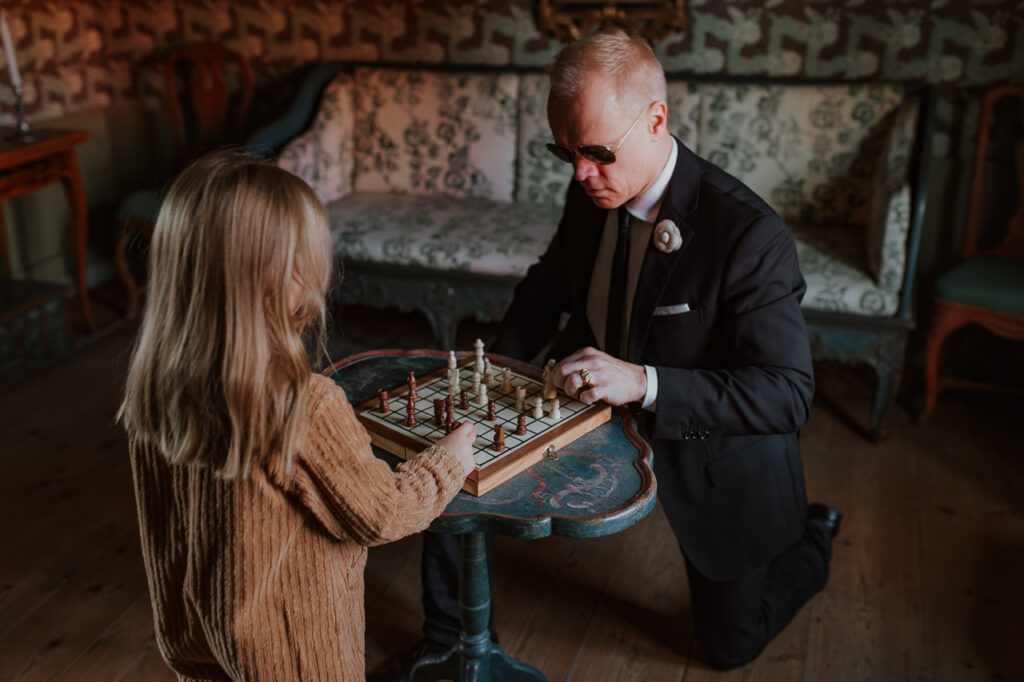
Punctuality is a habit carved deep by centuries of boardroom meetings and contract negotiations. He’s been walking similar corridors many times and also this time when the familiar pull begins.
That strange gravity that draws him away from his eternal commerce toward this… whatever this is. A chair materializes as he approaches—executive leather that perfectly suits his nature. He sits facing the entrance, briefcase at his feet, and for the first time in decades, doesn’t check his watch.
His eyes are immediately drawn to the executive suite doorways along the walls.
Something about this place feels different. Purposeful.
The World Renewed Protagonist comes next, though he’s been trying to avoid this place for months.
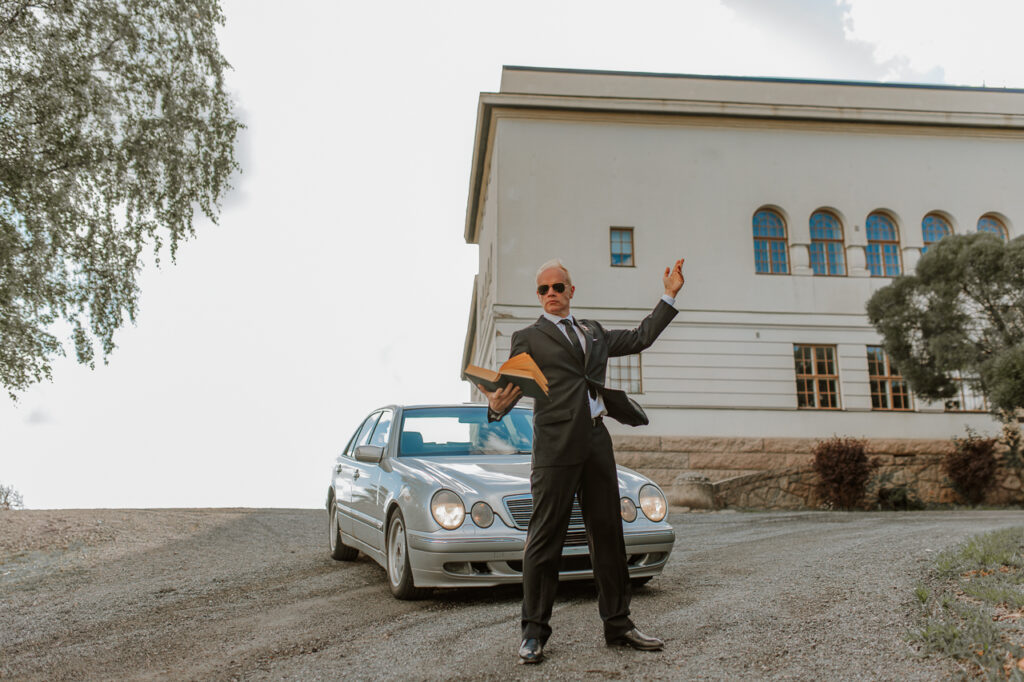
He’s certainly felt it calling to him!
That peculiar sensation of being summoned, but has dismissed it as paranoia, a side effect of his perfect deal.
Tonight, however, walking home from another flawless business dinner, the pull becomes irresistible. The city streets simply shift, and he finds himself here, still adjusting his cufflinks with the nervous precision of someone who’s built his identity on being in control. A chair appears for him—modern, minimalist. He sees the Ancient Manager and pauses. There’s something familiar about the older man’s posture.
The weight of someone carrying consequences.
As neither is in a hurry, they sit in silence for nearly an hour.
The Ancient Manager occasionally glances at documents that materialize and vanish in his hands. He’s running a tight ship that breaks for nobody.
The Protagonist, in turn, studies the room’s impossible architecture.
Walls that seem to extend infinitely upward, windows that show different skies depending on the angle of view.
Neither speaks, but both recognize something in the other. The scent of irreversible choices. But also anticipation. Something’s coming.
Then the Cultist arrives, and his entrance changes everything.
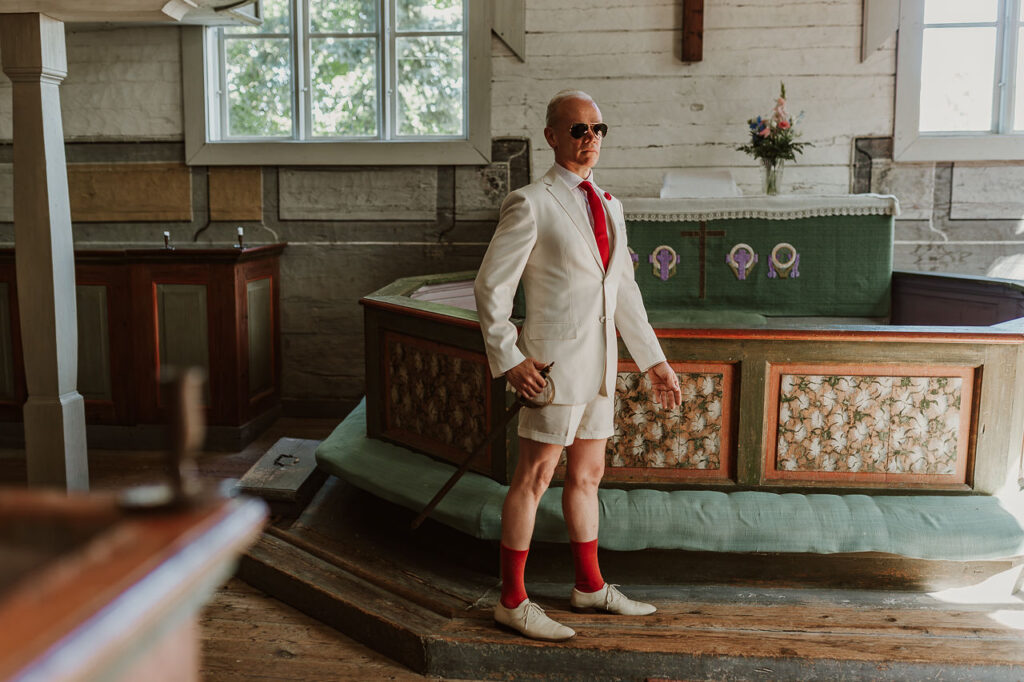
He doesn’t walk through the door so much as emerge from shadows that haven’t existed moments before, dirt still under his fingernails, clothes carrying the scent of turned earth and something older.
A simple wooden seat worn smooth by countless hands materializes for him. Unlike the others, he shows no surprise at finding himself here. He’s been expecting this meeting, though he can’t say how he knows it will happen.
His attention immediately goes to the earthen thresholds along the walls that smell of harvest fields.
His eyes move between the two men, and he nods slightly. Not in greeting, but in recognition.
That’s their cue and they all notice it.
The Dialogue
“Gentlemen,” the Ancient Manager says finally, his voice carrying the weariness of someone who’s attended too many meetings that matter too little.
He sets down a ledger that seems to write itself. “I suppose we’re here because we’ve all made our choices.” He looks at each of them carefully. “And I suspect we’re all wondering if they were truly ours to make.”
The Protagonist shifts uncomfortably in his perfectly tailored suit, which suddenly feels like a costume. “I didn’t choose to be here. This is some kind of side effect.”
But even as he says it, he knows he’s staying because he needs to know. Are there others who’ve played the game and won? Or think they’ve won?
“Is it?” the Cultist asks gently, settling into his chair with the fluid grace of someone completely at peace with uncertainty. “Or is this where people like us eventually end up?”
He studies both men with interest. “You both carry the same weight I do. Different choices, same consequence.”
The Ancient Manager stops checking his eternal watch. Time feels irrelevant for once. “I keep thinking about the moment I signed,” he says quietly. “Not the terms or consequences. Just the weight of the pen in my hand.
Heavier than it should have been. Should have known then.” He looks at the Protagonist. “You know that weight.”
The World Renewed Protagonist shifts in his perfect suit. “Weight,” he repeats, the word tasting strange. “I remember feeling light. Weightless, actually. Like I was floating above the whole negotiation, watching myself be brilliant.
Now I wonder if that lightness was just emptiness.” He pauses, studying the Cultist. “But you chose differently, didn’t you?”
“I remember the opposite,” the Cultist says, his voice carrying a peace that unsettles the others.
“When I offered myself to the harvest, I felt the full weight of the earth beneath my feet. First time in my life I belonged somewhere. Even if that somewhere was ending.”
The Protagonist stares at his hands. Same hands that signed the perfect contract. “But what if belonging is just giving up? What if your peace is surrender disguised as wisdom?”
“And what if your cleverness,” the Ancient Manager says gently, “is fear disguised as control?”
The Cultist smiles, but not triumphantly. The smile of someone who’d seen something the others hadn’t. Or couldn’t. “Maybe we’re all telling ourselves the stories we need to survive what we’ve done.”
“I used to think survival was the point,” the Ancient Manager continues.
“Build wealth, accumulate power, outlast everyone else. But outlasting everyone just means being alone with your choices forever. The real hell isn’t the work. It’s remembering who I was before I thought I needed more.”
Something cracks inside the Protagonist’s chest. “What if I didn’t outsmart anyone? What if I’m exactly where I was meant to be, thinking I won while playing someone else’s game? The Devil’s greatest trick wasn’t making me believe he didn’t exist. It was making me believe I was smarter than him.”
“Smart, dumb,” the Cultist says. “Just words we use to avoid the real question. Corn doesn’t ask if it’s smart to grow toward the sun. It just grows. Wisdom isn’t understanding the game. It’s accepting we were never really playing.”
The Ancient Manager laughs, hollow. “Accepting. Simple word for an impossible thing. Seven centuries trying to undo one moment of ambition. You’ve spent years congratulating yourself on yours. He’s dissolved himself entirely into something larger. Here we sit, still questioning.”
“Still questioning,” the Protagonist echoes. “Is that punishment or salvation?”
“Maybe,” the Cultist says softly, “it’s just what makes us human.”
The silence that follows isn’t empty.
Full of the weight of choices that couldn’t be unmade, paths that couldn’t be retraced, the terrible freedom of realizing you are exactly where your decisions led you.
- The Ancient Manager thinks of gold coins that no longer have weight.
- The Protagonist thinks of victories that feel like defeats.
- The Cultist thinks of silence where voices used to be.
In that shared recognition of irreversible consequence, something like understanding passes between them.
Not of their choices, but of the burden of having chosen at all.
They each rise up, walk to a different door and carry on their journeys.
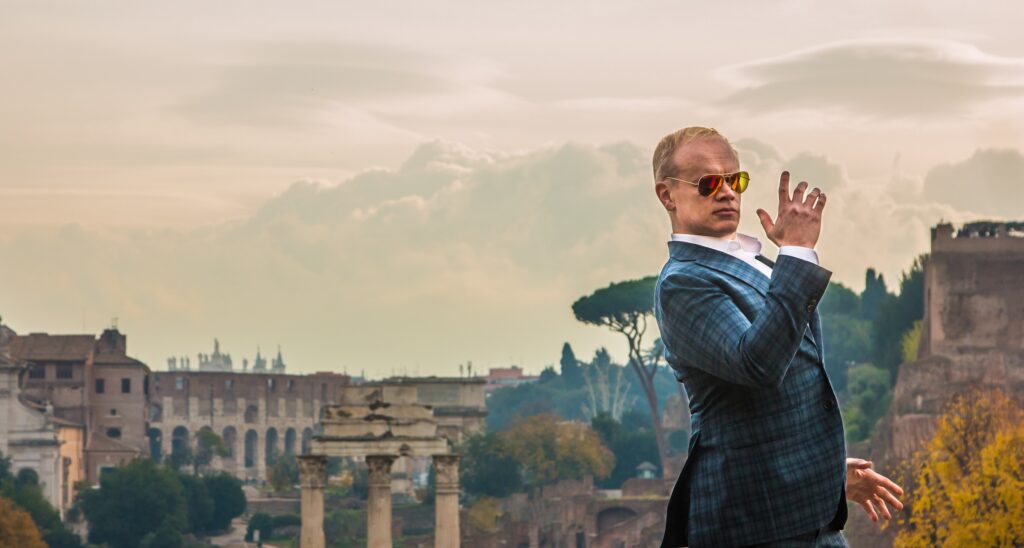
Reflections
Looking back at this conversation, this artistic experiment of mine, I’m struck by how quickly the characters moved from justifying their choices to questioning choice itself. This wasn’t Socratic method. It was something else. More human?
- The World Renewed protagonist’s confidence dissolved when confronted not with logical arguments but with the weight of his own success. His perfect deal became a prison of uncertainty.
- The Ancient Manager’s centuries of experience revealed themselves as centuries of the same wound, reopened daily. His eternity wasn’t punishment. It was the inability to forget who he used to be.
- The Cultist’s surrender offered peace but at the cost of the very self that might have appreciated that peace.
What emerged wasn’t resolution but recognition.
Each character discovered that their certainties, when examined honestly, revealed not new knowledge but new ways of living with unknowing.
This is what Kundera understood that Socrates didn’t: wisdom often lies not in the questions we ask but in the courage to live with the weight of our answers. The unbearable lightness of being isn’t about absence of meaning. It’s about the responsibility of creating meaning through our choices, even when we can’t be sure those choices are our own.
The question this conversation raises for characters and creators alike is whether any of us can truly know if we’re authoring our own stories or simply playing roles in narratives we don’t fully comprehend.
Maybe, in the end, the distinction matters less than how we choose to inhabit the uncertainty.
As their creator, I find myself wondering: did I orchestrate this meeting, or did these characters, having taken on lives of their own, simply find their way to each other?
Perhaps that’s the most honest question any artist can ask.
Interested in exploring your own existential weight? Read about the Socratic method and have one of your own!

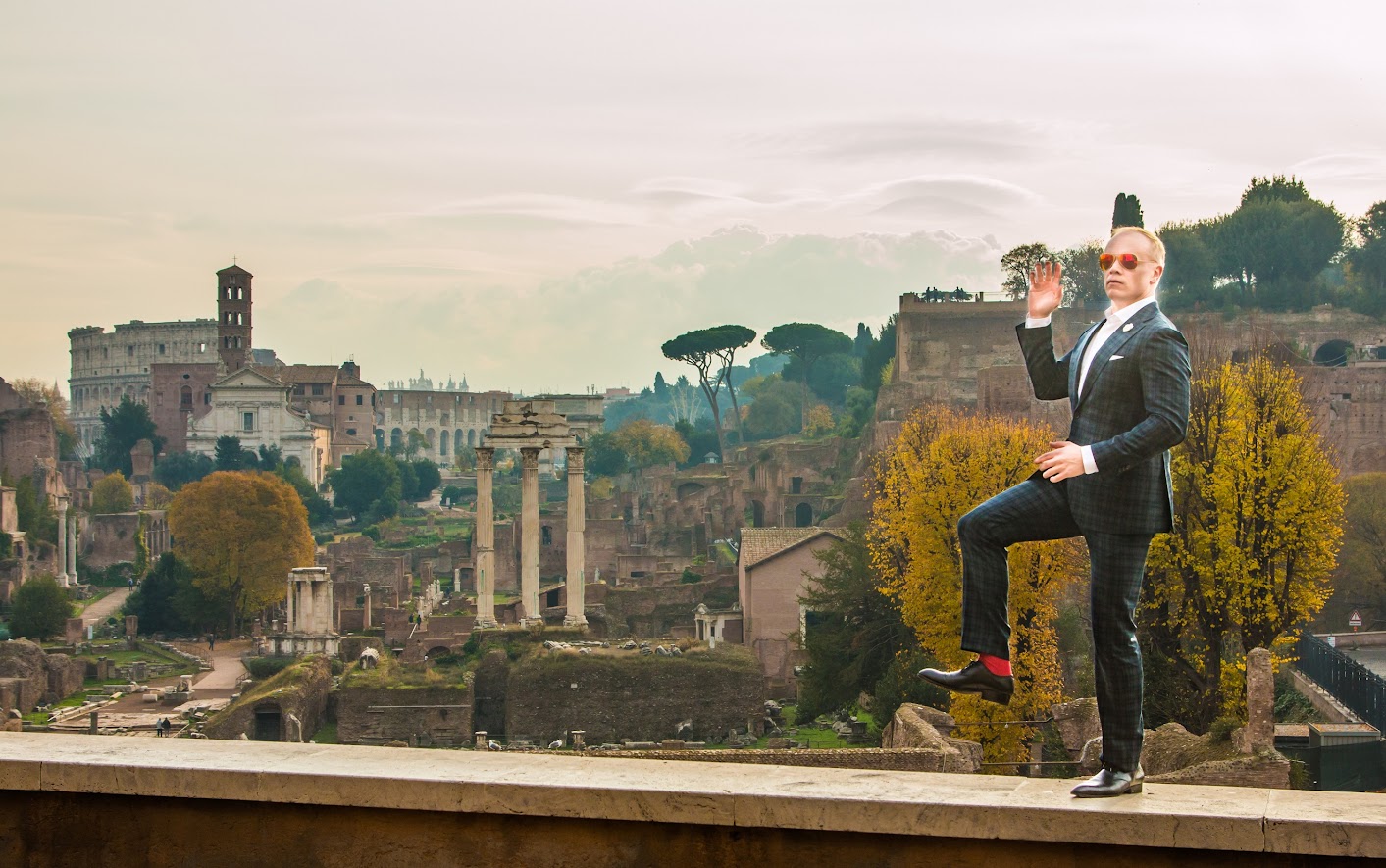
Leave a Reply